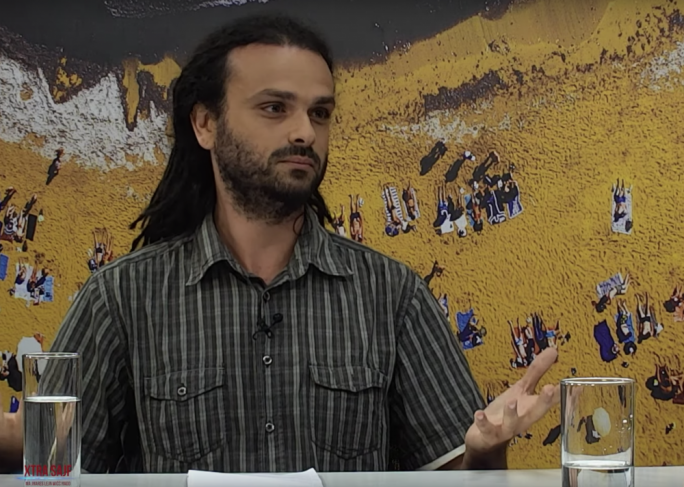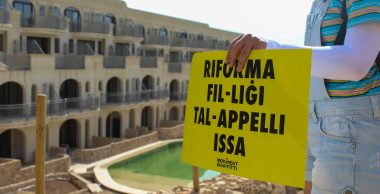Maltese authorities aren’t comfortable enforcing the rules against particular classes of people, to the detriment of the remainder of society, according to Moviment Graffitti activist Andre Callus.
Callus was a guest on current affairs programme Xtra Sajf last week, where he discussed Maltese civil society, and what he says is a system designed to benefit the wealthy.
“Our criticism is towards the system which includes people and structures that the two parties are a part of,” Callus explained, insisting that this went beyond the government of the day or any single individual.
“The interests of big business and the way they influence politics and the country’s decisions is a huge issue that goes beyond the government…but the government is an important part of it.”
Rather than the problem being individual cases of businessmen needing some help to make a project a reality, in reality, the country’s policies were being designed specifically for the needs of those with power. Similarly, the lack of enforcement in the country often favoured businesses over citizens.
“The authorities aren’t comfortable enforcing the rules against some classes of people”
Asked if more unity among environmental groups in the past could have led to more results, Callus said he didn’t believe there was a lack of unity, stressing that what was required at this stage was more direct involvement of the people.
“People are very concerned because they are feeling it. Dust everywhere, buildings collapsing…Yes, a building collapsing is very serious but this is a part of a much broader issue.”
Referring a protest last month, organized in wake of the third building collapse over a period of two months, Callus noted that people had attended who are not normally associated with environmental movements.
“These people’s message is that now we have reached a stage where they can’t take it any longer… I tend to avoid using the term environment because it very abstract to many people. Here we are talking about quality of life.”
He said that the recent controversy regarding whether architects should be responsible for construction sites was like missing the wood for the trees, given that the problem lay in the fact that the country’s planning structures were not functioning. “We have a system which is rotten to the core.”
Callus pointed to three court decisions last month, where the court had found that three separate permits had been granted illegally.
“Did anyone take responsibility? Did the CEO of the Planning Authority Johann Buttigieg take responsibility? Did minister Ian Borg take responsibility?”
One of the decisions saw the courts nullify the permit granted to the DB Group for the development of a hotel and residential complex in St George’s Bay. Callus was asked whether he was concerned that this would open a Pandora’s Box that could hurt the country’s economy.
“No not really. First of all, I don’t think that some of these big projects are going to have such a positive economic impact. I don’t see the economy as one thing and don’t just consider economic growth. The economy is not some god we need to offer sacrifices to for it to give us something in return.”




